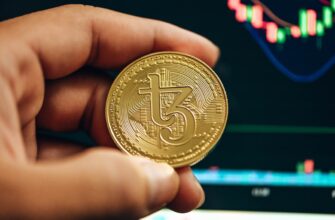What is a Cryptocurrency Circle?
A cryptocurrency circle refers to a collaborative group of investors who pool resources to collectively research, analyze, and invest in digital assets. Unlike solo trading, these circles leverage shared knowledge to navigate volatile crypto markets. Members typically include beginners seeking guidance and experienced traders sharing insights. Circles operate through private forums, messaging apps, or dedicated platforms, focusing on strategies like long-term holds, DeFi opportunities, or emerging altcoins. The core philosophy centers on “wisdom of the crowd” – reducing individual risk through diversified expertise while building a supportive community around blockchain technology.
How Cryptocurrency Circles Operate
Most cryptocurrency circles follow structured frameworks to maximize efficiency and trust:
- Membership Tiers: Free groups offer basic discussions, while premium circles charge fees for exclusive signals and deep-dive analysis.
- Contribution Systems: Active participants share research reports or technical charts; passive members benefit from collective intelligence.
- Investment Pools (Optional): Some circles create shared wallets for group investments, managed via multi-signature security.
- Communication Channels: Discord and Telegram are popular for real-time alerts, supplemented by weekly Zoom meetings for strategy sessions.
- Governance Models: Decisions may be democratic (member votes) or meritocratic (led by seasoned moderators).
Key Benefits of Joining a Crypto Circle
- Knowledge Amplification: Access diverse perspectives – from fundamental analysis to on-chain metrics – accelerating your learning curve.
- Risk Mitigation: Collective due diligence identifies red flags in projects faster than individual research.
- Network Expansion: Connect with developers, analysts, and influencers for broader opportunities.
- Emotional Discipline: Group accountability prevents impulsive decisions during market turbulence.
- Resource Sharing: Split costs for premium tools like TradingView Pro or blockchain analytics subscriptions.
Risks and Critical Considerations
While advantageous, cryptocurrency circles carry inherent challenges:
- Scam Potential: Fake “pump-and-dump” groups may manipulate prices; verify circle legitimacy through third-party reviews.
- Information Overload: Conflicting signals from members can cause analysis paralysis.
- Regulatory Gray Areas: Pooled investments might qualify as unregulated securities in some jurisdictions.
- Skill Disparity: Novices may over-rely on experts without developing independent judgment.
- Exit Conflicts: Disagreements on when to sell assets can fracture groups.
Mitigation Tip: Always DYOR (Do Your Own Research) before acting on circle recommendations and use separate wallets for group vs. personal investments.
Finding and Joining Reputable Circles
Follow this step-by-step approach:
- Identify Your Niche: Target circles aligned with your goals (e.g., Bitcoin maximalists, NFT collectors, or DeFi yield farmers).
- Research Platforms: Explore curated directories like CircleFinder or CryptoCompare. Subreddits (r/CryptoCurrency) often have verified group listings.
- Vet Thoroughly: Check for transparent leadership, historical performance records, and anti-scam measures like escrow services.
- Start Small: Join free trial periods before committing funds. Observe discussion quality and moderator responsiveness.
- Contribute Value: Share unique insights during onboarding to build credibility within the community.
Maximizing Your Circle Experience: 5 Pro Tips
- Set Boundaries: Allocate only 10-15% of your portfolio to circle-driven investments.
- Cross-Verify Signals: Validate group recommendations with independent tools like Glassnode or CoinGecko.
- Track Performance: Use spreadsheets to compare circle-suggested trades against your personal strategy ROI.
- Rotate Circles Seasonally: Shift between groups during bull/bear markets to access specialized strategies.
- Exit Gracefully: Provide constructive feedback when leaving to maintain industry relationships.
Frequently Asked Questions (FAQ)
Q: Are cryptocurrency circles legal?
A: Yes, if structured as educational communities. Investment pools may require regulatory compliance – consult a financial advisor in your region.
Q: How much does joining a premium circle cost?
A: Fees range from $20/month for basic access to $500+/month for VIP groups with direct mentor access. Always demand transparent pricing.
Q: Can I start my own cryptocurrency circle?
A: Absolutely! Begin with a small trusted group, establish clear governance rules, and use secure collaboration tools like Gnosis Safe for fund management.
Q: Do circles guarantee profits?
A: No legitimate circle promises returns. Crypto markets are volatile; treat all insights as informational, not financial advice.
Q: How do circles differ from DAOs?
A: Circles are informal human networks, while DAOs (Decentralized Autonomous Organizations) operate via blockchain-based smart contracts with tokenized governance.
Q: What red flags indicate a scam circle?
A: Avoid groups demanding upfront crypto payments, pressuring FOMO buys, or refusing to share historical trade data.








